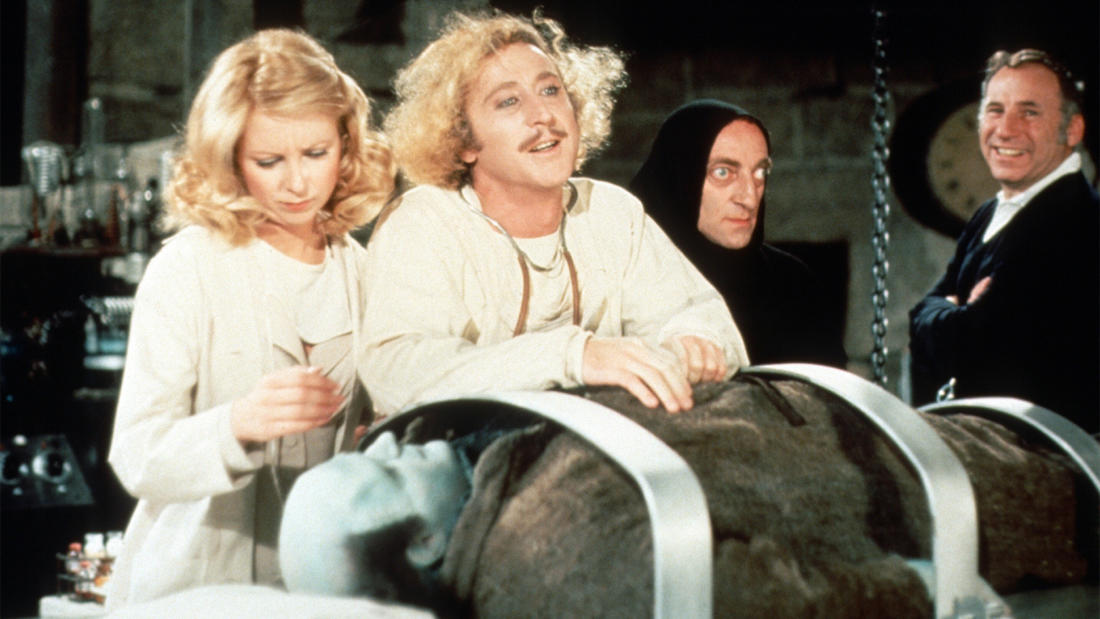
Coolidge Corner Theatre Brookline, MA
Dr. Dany Spencer Adams
Principal Investigator, Tufts Center for Regenerative and Developmental Biology, Tufts University
Young Frankenstein— Guiding Biology
Program Description
Dr. Dany Adams discussed her research into how the natural electrical signals that are transmitted among cells help guide biological shape, and how these signals may be manipulated to generate specific organs and body parts.
Presented At
Coolidge Corner Theatre Brookline, MA
Film Synopsis
An American grandson of the infamous scientist, struggling to prove that he is not as insane as people believe, travels to his family's home country and discovers the process that reanimates a dead body.
Young neurosurgeon Frederick Frankenstein (co-writer Gene Wilder) has spent his entire life trying to live down his family's reputation by altering the pronunciation of his name ("That's Fronkensteen") and rejecting his infamous grandfather's experiments in reanimating dead tissue. But when he is forced to visit the old family castle in Transylvania and discovers granddad's lab journal, he embraces his destiny: to succeed where his ancestor failed. With the help of a salvaged corpse, a purloined brain, and an electrical storm, Frederick creates his monster (Peter Boyle) and brings him to life, with hilariously unintended consequences. The lively supporting cast of characters includes Frankenstein’s voluptuous lab assistant, Inga (Teri Garr), pop-eyed hunchback Igor (Marty Feldman), fearsome housekeeper Frau Blücher (Cloris Leachman), and his high-strung fiancée (Madeline Kahn). Director Mel Brooks turns the Frankenstein legend into comic gold in this inspired parody of 1930s Universal horror classics, filmed in gorgeous black and white and recreating in loving detail the look and feel of the original movies.
About the Speaker
Dr. Dany Spencer Adams is a principle investigator at the Tufts Center for Regenerative and Developmental Biology, part of the Biology Department at Tufts University. Adams is particularly interested in the biological process (called morphogenesis) that causes an organism to take shape during its growth from embryo to adult. Having studied the biomechanical aspects of animal development in graduate school, she now focuses on investigating how the electrical signals generated by cells themselves help initiate and guide facial formation and limb regeneration. Combining four-dimensional imaging with experimental manipulation of electrical signals using the tools of molecular biology, her work has, not entirely wrongly, been compared to that of Mary Shelley’s fictional character, Victor Frankenstein. Dr. Adams is affiliated with the EBICS program at MIT, and is a regular participant in the Annual Ig Nobel Prize ceremonies at Harvard.